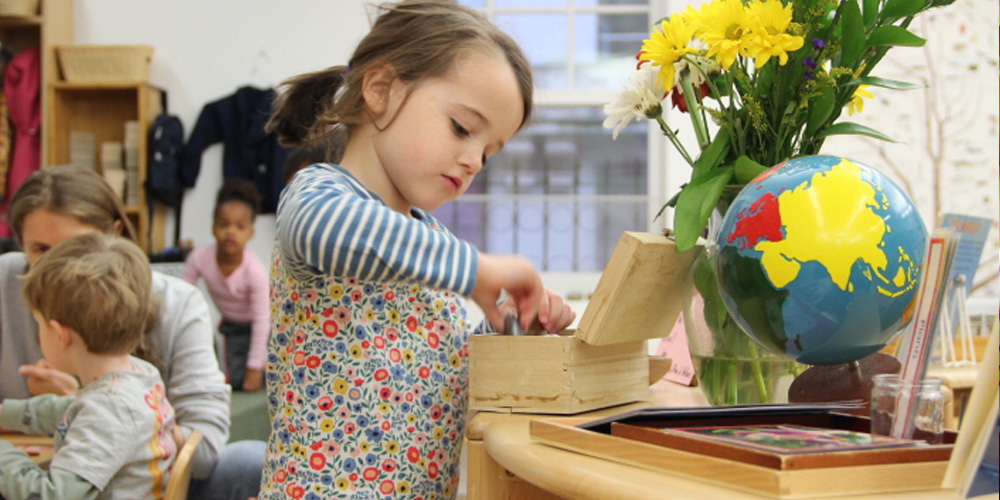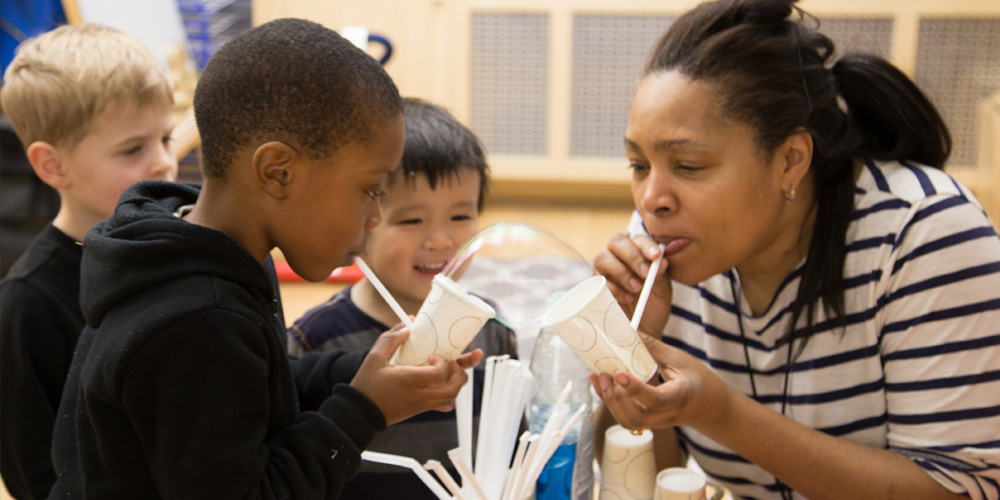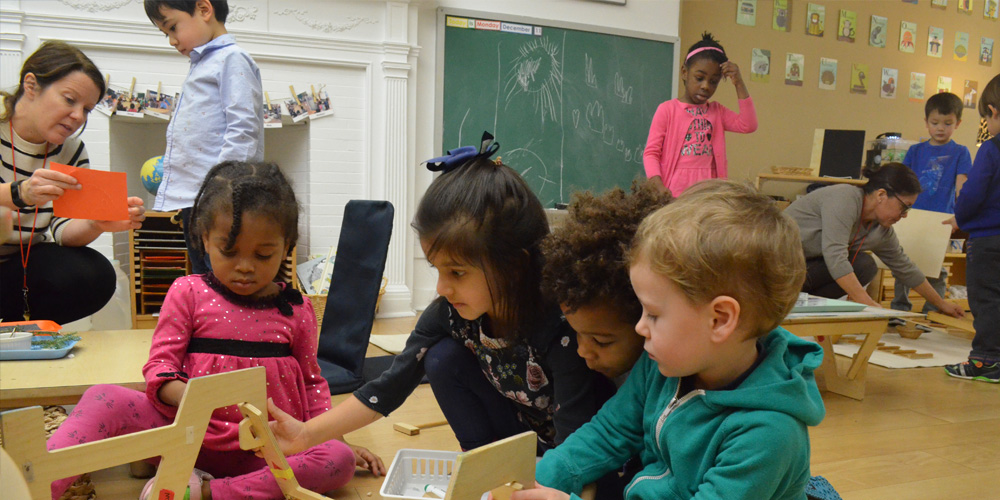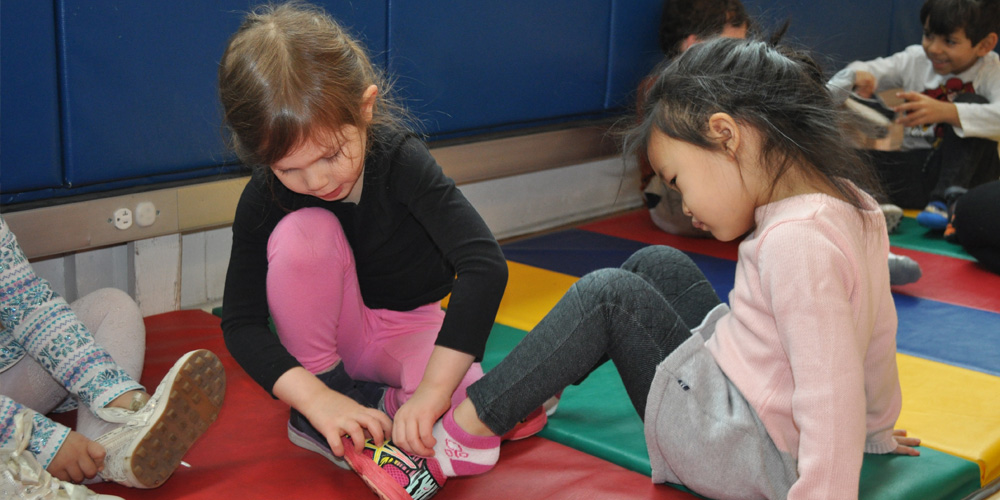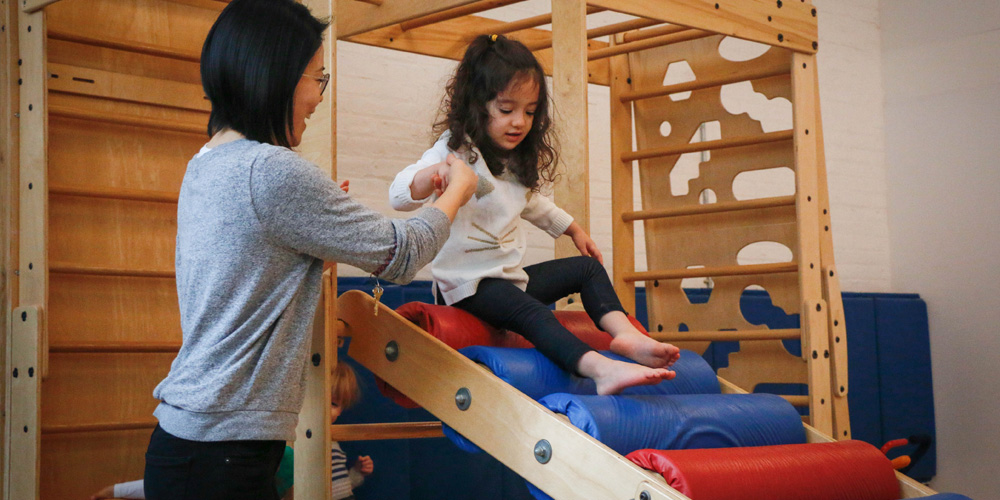Our children learn how to learn. They learn to focus their attention on an interest, and in doing so make a commitment to learning about something. Through this active engagement they discover the joy in learning. We recognize the importance of each child’s early experiences in the formation of an emotionally healthy, responsible adult. We see our role as nurturing the immense potential within each child, and supporting each child in the task of inner development. We believe that children’s intellectual growth is intertwined with their social and emotional development. Intellectual growth flourishes in a non-judgmental community where freedom for the individual is balanced with the needs of the group. In our classrooms children can choose to work independently or with classmates. As they develop more and more competencies, they quite naturally take on increased responsibility in the activities of the classroom.
Children have a natural love for learning. At WSMS, we focus on helping children learn how to learn so that they become intrinsically motivated to do so and to retain their zest for knowledge throughout their lives. Teachers are there to observe, to listen, and to assist when necessary, but we support the child to work independently and let their interests and talents guide them. In the words of Maria Montessori, “The greatest sign of success for a teacher is to be able to say, ‘The children are now working as if I did not exist.’ ”
We encourage children to think for themselves and to question what they learn. We do not test them or train them to regurgitate answers given to them by adults. We live by the attitude that many answers can be good, or “right.” When we provide them with learning experiences where the correct answer depends on the circumstances, children stretch their mental muscles and begin to become flexible in their thinking. We foster flexible thinking by asking children at the end of a lesson or project, “Is there another way to do this?” We remain open to different answers and different ways of thinking from children and listen patiently as they explain their reasoning.
Children are resourceful and can come up with imaginative solutions that adults might not think of. Rather than try and mold the child to our adult way of thinking, we believe that they can arrive at informed decisions by using their own innate reasoning skills. We teach children not to fear mistakes, and do not ridicule or criticize children when they make mistakes. This approach helps to build children’s confidence when tackling problems—they see them as an opportunity to succeed or to learn a new lesson if they do not succeed right away. We encourage children to work through their problems, rather than giving up, and foster collaboration between students as a way of solving the problem.
Children who develop a social conscience, compassion for others, and a sense of responsibility towards others will change the world for the better. WSMS teachers model kindness and respect in the classroom, making it a safe environment to express emotion and take risks. Our focus on cooperative learning enables children to want to aid each other, through which they learn kindness. Children become more aware of the feelings of others as they act, and respect and empathy grows. We believe that children who make a positive difference in their world through service projects gain a sense of self-worth and responsibility, and that even very young children can initiate these projects.
Every child experiences disappointment and failure as they learn and grow, but the way they are helped to respond to these difficult times is key. A resilient child looks at mistakes and disappointments as opportunities to learn, rather than setbacks, and as a result, they approach life with enthusiasm and confidence. We encourage children to trust their own powers of reasoning to work through difficult situations. In this way, children gain ownership over their problems and are willing to explore options and find solutions. We foster self-worth in children by offering them generous and frequent attention. Children learn to believe in themselves and bounce back more easily from disappointment.


